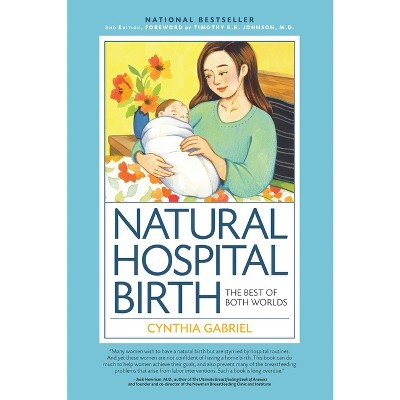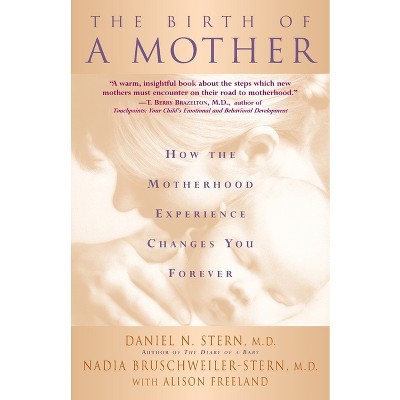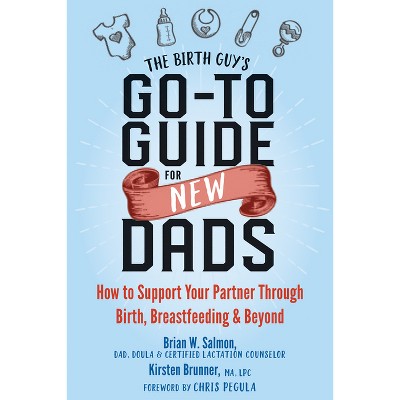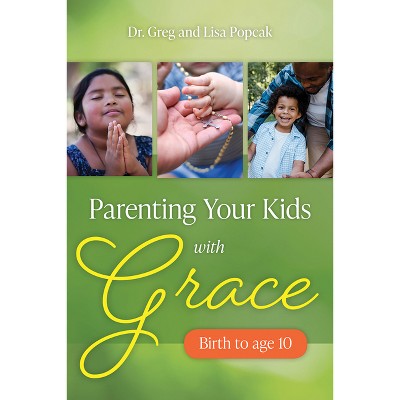Sponsored

Indigenous Experiences of Preguancy and Birth - by Neufield Hannah Tait (Paperback)
$26.99Save $2.96 (10% off)
In Stock
Eligible for registries and wish lists
Sponsored
About this item
Highlights
- Traditional midwifery, culture, customs, understandings, and meanings surrounding pregnancy and birth are grounded in distinct epistemologies and worldviews that have sustained Indigenous women and their families since time immemorial.
- About the Author: Hannah Tait Neufeld is an Assistant Professor at the University of Guelph in the Department of Family Relations and Applied Nutrition.
- 208 Pages
- Family + Relationships, Parenting
Description
About the Book
Traditional midwifery, culture, customs, understandings, and meanings surrounding pregnancy and birth are grounded in distinct epistemologies and worldviews that have sustained Indigenous women and their families since time immemorial. Years of colonization, however, have impacted the degree to which women have choice in the place and ways they carry and deliver their babies. As nations such as Canada became colonized, traditional gender roles were seen as an impediment. The forced rearrangement of these gender roles was highly disruptive to family structures. Indigenous women quickly lost their social and legal status as being dependent on fathers and then husbands. The traditional structures of communities became replaced with colonially informed governance, which reinforced patriarchy and paternalism. The authors in this book carefully consider these historic interactions and their impacts on Indigenous women's experiences. As the first section of the book describes, pregnancy is a time when women reflect on their bodies as a space for the development of life. Foods prepared and consumed, ceremony and other activities engaged in are no longer a focus solely for the mother, but also for the child she is carrying. Authors from a variety of places and perspectives thoughtfully express the historical along with contemporary forces positively and negatively impacting prenatal behaviours and traditional practices. Place and culture in relation to birth are explored in the second half of the book from locations in Canada such as Manitoba, Ontario, British Columbia, the Northwest Territories, and Aotearoa. The reclaiming and revitalization of birthing practices along with rejuvenating forms of traditional knowledge form the foundation for exploration into these experiences from a political perspective. It is an important part of decolonization to acknowledge policies such as birth evacuation as being grounded in systemic racism. The act of returning birth to communities and revitalizing Indigenous prenatal practices are affirmation of sustained resilience and strength, instead of a one-sided process of reconciliation.Book Synopsis
Traditional midwifery, culture, customs, understandings, and meanings surrounding pregnancy and birth are grounded in distinct epistemologies and worldviews that have sustained Indigenous women and their families since time immemorial. Years of colonization, however, have impacted the degree to which women have choice in the place and ways they carry and deliver their babies. As nations such as Canada became colonized, traditional gender roles were seen as an impediment. The forced rearrangement of these gender roles was highly disruptive to family structures. Indigenous women quickly lost their social and legal status as being dependent on fathers and then husbands. The traditional structures of communities became replaced with colonially informed governance, which reinforced patriarchy and paternalism. The authors in this book carefully consider these historic interactions and their impacts on Indigenous women's experiences. As the first section of the book describes, pregnancy is a time when women reflect on their bodies as a space for the development of life. Foods prepared and consumed, ceremony and other activities engaged in are no longer a focus solely for the mother, but also for the child she is carrying. Authors from a variety of places and perspectives thoughtfully express the historical along with contemporary forces positively and negatively impacting prenatal behaviours and traditional practices. Place and culture in relation to birth are explored in the second half of the book from locations in Canada such as Manitoba, Ontario, British Columbia, the Northwest Territories, and Aotearoa. The reclaiming and revitalization of birthing practices along with rejuvenating forms of traditional knowledge form the foundation for exploration into these experiences from a political perspective. It is an important part of decolonization to acknowledge policies such as birth evacuation as being grounded in systemic racism. The act of returning birth to communities and revitalizing Indigenous prenatal practices are affirmation of sustained resilience and strength, instead of a one-sided process of reconciliation.Review Quotes
This book makes a compelling contribution to the field of Indigenous and maternal studies. The editors have put together a powerful collection that honours the spirit of pregnancy and birth, and the strength and resilience of Indigenous women and families. By acknowledging the ceremony of birth in relation to contemporary Indigenous issues, such as forced evacuation and water protection, the editors contextualize the layers of meaning embedded in returning birth to Indigenous communities. This book serves as an expression of the creative acts of resistance that have always defined Indigenous motherhood. ?JENNIFER BRANT, Faculty of Education, University of Manitoba, co-editor of Forever Loved: Exposing the Hidden Crisis of Missing and Murdered Indigenous Women and Girls in Canada
About the Author
Hannah Tait Neufeld is an Assistant Professor at the University of Guelph in the Department of Family Relations and Applied Nutrition. Her research focuses on Indigenous health inequalities, taking into consideration community interests, along with other environmental factors influencing maternal child health and nutrition. Jaime Cidro is an Associate Professor at the University of Winnipeg in the Department of Anthropology. She works in the area of Indigenous social determinants of health, Indigenous food, maternal child health and most recently with Indigenous doulas and women who travel for birth.Dimensions (Overall): 8.9 Inches (H) x 5.9 Inches (W) x .7 Inches (D)
Weight: .8 Pounds
Suggested Age: 22 Years and Up
Number of Pages: 208
Genre: Family + Relationships
Sub-Genre: Parenting
Publisher: Demeter Press
Theme: Motherhood
Format: Paperback
Author: Neufield Hannah Tait
Language: English
Street Date: October 1, 2017
TCIN: 1005110870
UPC: 9781772581355
Item Number (DPCI): 247-03-7679
Origin: Made in the USA or Imported
If the item details aren’t accurate or complete, we want to know about it.
Shipping details
Estimated ship dimensions: 0.7 inches length x 5.9 inches width x 8.9 inches height
Estimated ship weight: 0.8 pounds
We regret that this item cannot be shipped to PO Boxes.
This item cannot be shipped to the following locations: American Samoa (see also separate entry under AS), Guam (see also separate entry under GU), Northern Mariana Islands, Puerto Rico (see also separate entry under PR), United States Minor Outlying Islands, Virgin Islands, U.S., APO/FPO
Return details
This item can be returned to any Target store or Target.com.
This item must be returned within 90 days of the date it was purchased in store, shipped, delivered by a Shipt shopper, or made ready for pickup.
See the return policy for complete information.











